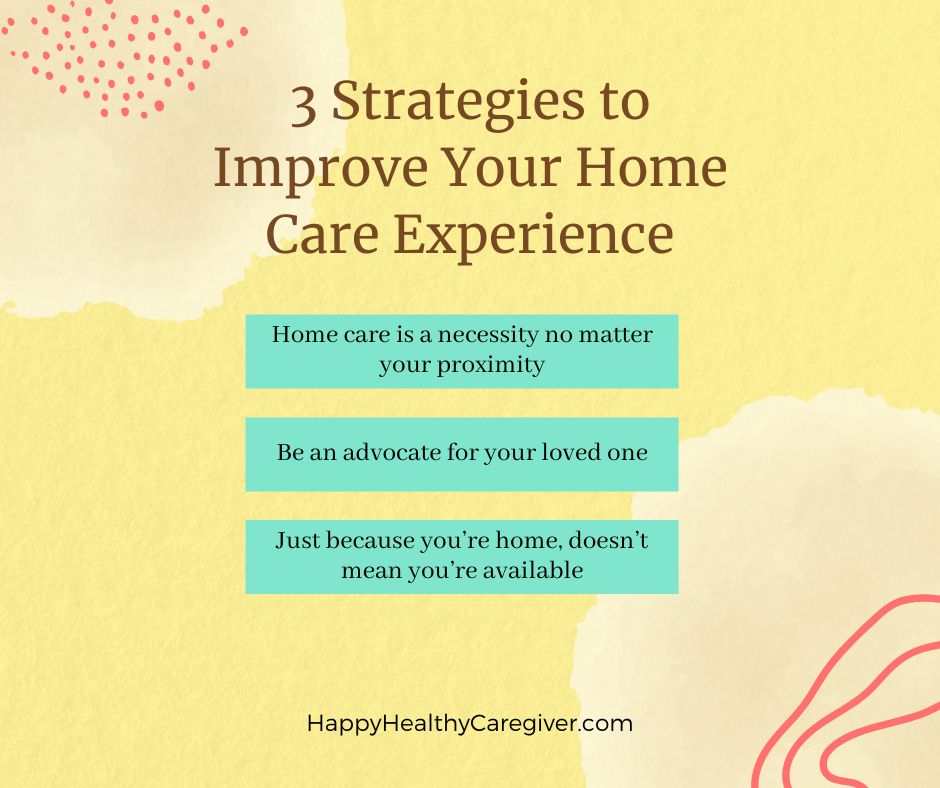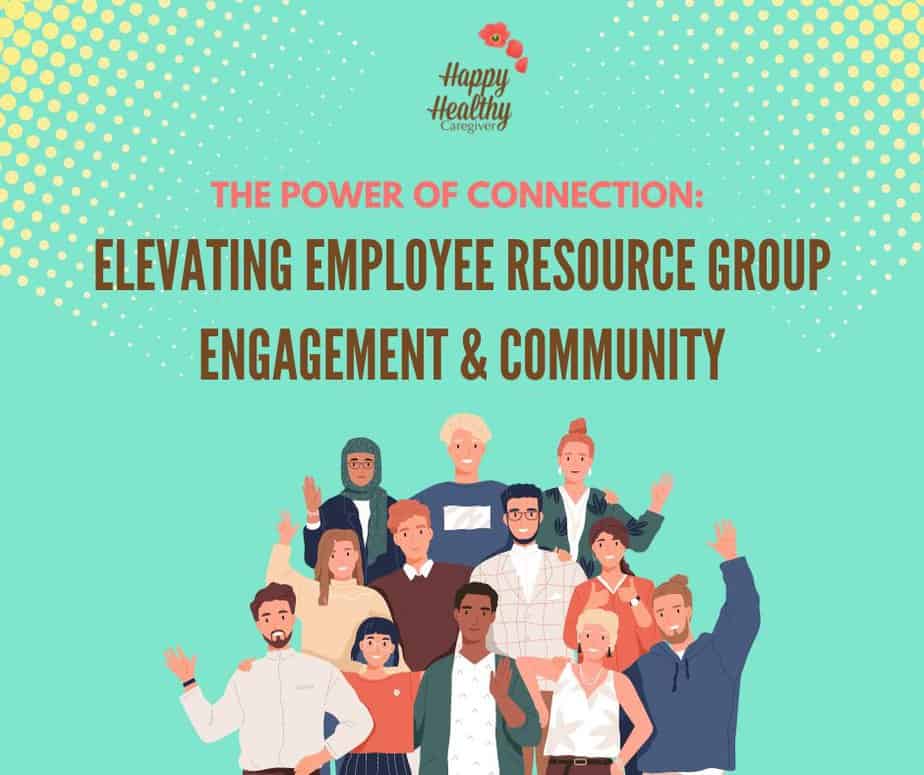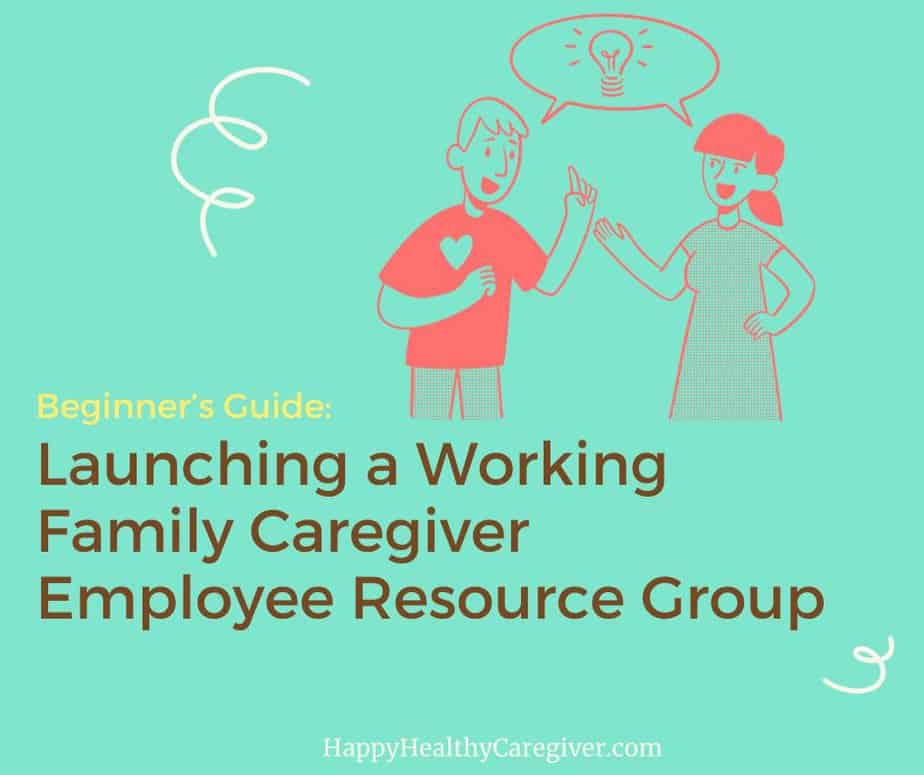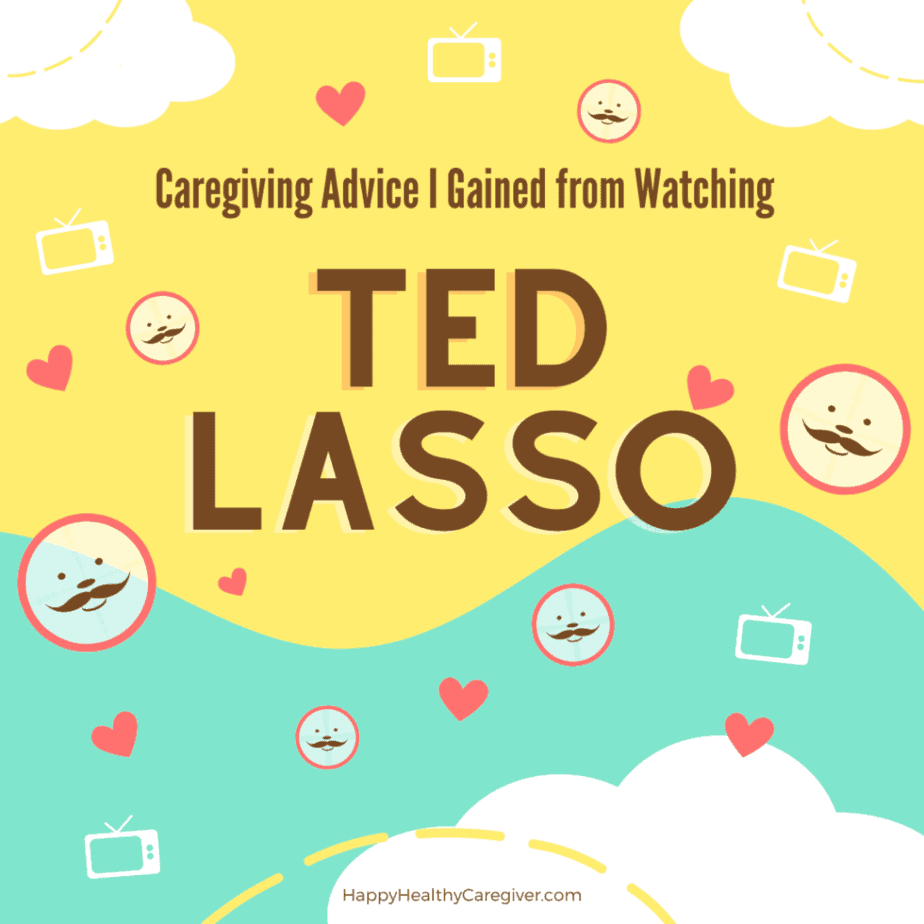a guest post written for Happy Healthy Caregiver by family caregiver, Jennifer Lagemann
I’ve been through home care from three different perspectives and want to share some quick tips on how to make your home care experience seamless and stress-free.
- As the primary caregiver of a loved one, I’ve learned that home care is only one part of the equation when it comes to long-term care.
- As the family member of a care recipient, I’ve learned that no one will care for my loved one to the extent that I do, but my presence can be exponential—with proper help.
- As the care manager and scheduler in a home care agency, I’ve learned that taking 12 hours to try and arrange schedules to fill a shift can sometimes sadly amount to nothing.
I’ll go over this and more in the coming sections, let’s get to it!
Home care is a necessity no matter your proximity to the care recipient.
I was first exposed to the grueling work of a family caregiver when I was 12. My grandmother lived with my parents and me since I came into the world. She was a part of my nuclear family structure.

My grandmother had early-stage dementia, and I was her companion from 3 pm to 12 am during the week after I got off the bus, and on the weekends. At this young age, I didn’t know what a family caregiver was, how to seek help, or how to talk about these responsibilities with trusted adults or my peers.
My mom, aunt, uncle, and I were my grandmother’s complete care team. Despite the division of unpaid labor, we were all at varying points in time exhausted. Whether you use home care as a respite for your full-time responsibilities or delegate your duties entirely, it’s a worthwhile investment.
Eventually, we had home health and hospice agencies come in but this didn’t act as a substitute for our efforts it simply strengthened our team.
Be an advocate for your loved one.
I’ll be the first to admit that at one point while working as the care manager and scheduler in a home care agency, I resented the calls from family members with complaints. I lost touch with what it meant to be a family caregiver and to give your loved one every ounce of effort and attention that you have in your body.
Don’t feel that you’re bothering your home health or hospice agency by calling and asking for an update or needing to change your schedule because of personal or work matters. You are enlisting external help for your family member, and you are a priority. Your voice matters.
When my grandmother needed care at home beyond what my family and I could provide, one of us always had to be home in order to translate. My grandma only spoke Vietnamese, and I became bilingual at a young age. I was there at every appointment and late-night visit to the ER.
Home care agencies may be able to help you most of the time, however, as the family caregiver, you’re often the one receiving health updates and changes in the treatments throughout a hospital stay. If this means creating your own care plan or calling the agency to update a care plan, do it!
My mom wrote up a care plan for my grandmother with her favorite foods. She also wrote a daily summary of what happened related to grandmother the night before, since our help came in for a few hours during the day and this process helped smooth the transition of care.
Even if your loved one lives in a senior living community and receives home care
simultaneously, never stop being their advocate. A virtual presence is better than no presence.

Just because you’re home, doesn’t mean you’re available.
Being home is not synonymous with being on-call or readily available for an update. When I was working as a home care scheduler, we had clients triaged based on the necessity of care, from people who can be left alone to those who can’t. Our agency ranked clients on the necessity when we had staff shortages due to emergencies and call-offs. For example, if someone lived alone versus had a family member at home, the person living alone would be the priority to schedule.
Whether the agency you work with has this structure or not, be firm with the fact that if you occupy the home you’re not open to covering a shift. Be clear on what role you want to have as the family caregiver when a professional caregiver is in the home. There has been a professional caregiver shortage looming for the last decade—give or take—but that doesn’t mean there are not alternatives.
On the flip side of this, home care agencies are capable of training and equipping their caregivers to work with your loved one. If there’s a shift cancellation or call-off with your home care agency, be open to having a replacement caregiver. I say this loosely because I am well aware that not every replacement is a relief.
I had a client that didn’t want me to schedule a male professional caregiver. I exhausted all of my options, and our only on-call caregiver was male. I gave the family a call, and they were willing to give him a try. It turned out to be a great option! The client and family were over the moon for him, his skills, his compassion, and his expertise.
To sum it up, enjoy your home care agency.
Home care is a grossly underutilized resource that many family caregivers can benefit from. I am thankful to have experienced care from these angles and to share these insights with others.
I’ve had the pleasure of speaking with many home care business owners who are genuinely concerned with providing the older adults of their communities with quality care. I’ve spoken to many professional caregivers who want to make a career out of caring for others, and it gives me hope that the industry will be elevated from this point on.
If you are receiving care from a home care agency, take the time to enjoy it. Get to know your professional caregiver. I have learned so much from each of them and every story is one that I will treasure.
Jennifer Lagemann is a former family caregiver, home care caregiver, and care manager/scheduler. She founded NextJenn Copy to provide marketing and operational support to home care agencies and non-profits that support caregivers.



